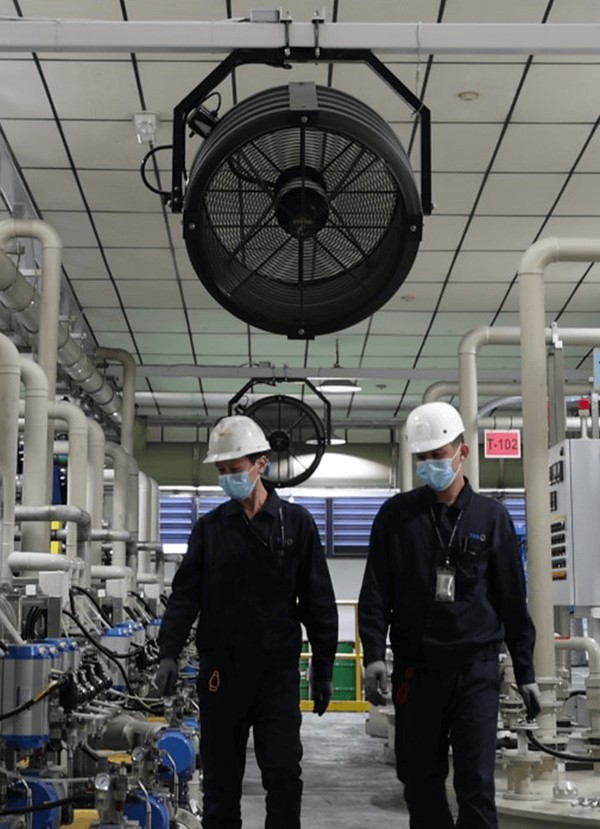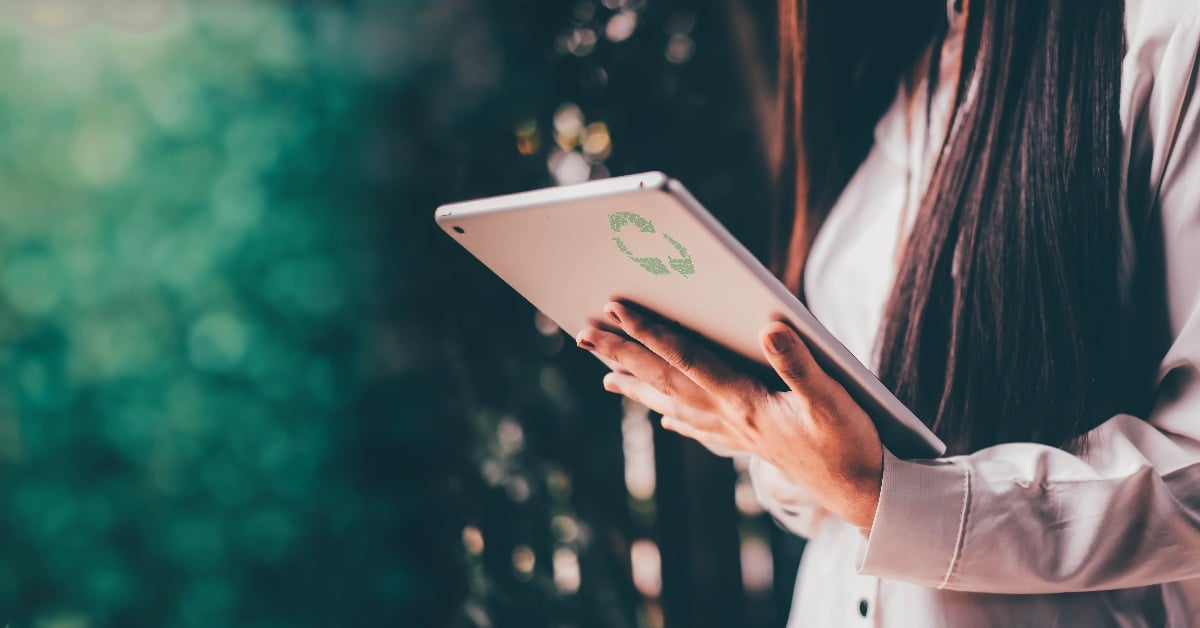Sustainable Battery Recycling Services
Global handling, transportation, reuse, and recycling of lithium-ion batteries. Our global, closed-loop battery recycling solutions recover valuable materials and revenue for your business.
TALK TO US ABOUT BATTERY RECYCLING-4-1.png?width=550&height=760&name=Untitled%20design%20(3)-4-1.png)

SK Tes understands your battery lifecycle management needs, delivering sustainable global solutions to the world's largest OEMs.
Knowledge and Expertise
Having a deep understanding of local legislation and Basel Convention Regulations on waste and hazardous commodities requires a high level of expertise. We're experts at navigating the complex landscape of waste compliance and hazardous goods regulations, enabling us to analyze your supply chain and design solutions that are tailored to your specific needs.
Permits and Notifications
A global agreement, established to decrease the transportation of harmful waste across borders, regulates the movement of batteries. As responsible, international Li-ion battery recyclers, we possess notifications, licenses, and export confirmations required to manage compliant and responsible global battery movements.
Global Processing and Logistics Network
With an extensive global processing footprint of owned and operated sites and a network of logistics partners, we provide packaging, collection, storage, consolidation, and handling of your lithium-ion batteries around the world.
SUSTAINABILITY
Best-in-Class Recycling Facilities
Advanced, proprietary battery recycling technology transforms discarded batteries into industrial grade metals at SK Tes facilities around the world.
Our state-of-the-art equipment, including auto-punching machines and shredders, allows us to break down batteries into high-quality black mass. By doing so, we are able to recover valuable materials such as nickel, lithium, and cobalt, which can then be reused in the forward supply chain.
The SK Tes process aligns with the principles of the circular economy, creating a closed-loop system where raw materials from end-of-life batteries are repurposed for new products. Commodities generated include:
-
Lithium Carbonate
-
Cobalt Hydroxide
-
Sodium Sulfate (by-products)
-
Graphite/Copper/Aluminum
SUSTAINABILITY
Recovering commodity-grade materials from lithium-ion batteries
With the global demand for resources at an all-time high, it is predicted that some resources, such as lithium and cobalt, might become scarce within the next century. These elements are vital components in batteries for electric vehicles and IT devices, making responsible resource management crucial.
SK Tes is responsibly recovering these elements during the recycling process of batteries. Our state-of-the-art, environmentally-friendly method produces the highest and purest commodity-grade recovery rates in the industry. By recovering these materials, we can reintroduce them into the supply chain, reducing the need to source new resources. This closed-loop solution is cost-effective, safe, and sustainable.
An award-winning process...
Our award-winning, innovative battery recycling process has been acclaimed globally, winning multiple sustainability and innovation awards.
Recognizing leadership and innovation in sustainability initiatives, SK Tes has risen above formidable competition to garner recognition. Our battery recycling technology has been honored with awards, including Sustainability Service of the Year from the Business Intelligence Group, SEAL's Business Sustainability Award, the Green Organization's Green World Award, the Edison Award, and the UN Global Compact's Apex Award.
280000 +
Our commercial battery recycling facility in Singapore has the capacity to handle 14 tonnes of Lithium-ion batteries or the equivalent of 280,000 smart phones each day.
90 %
If 10kgs of batteries go into our process, we're able to capture 9kgs of usable commodity material in the recycling process - achieving 90% recovery rates.
99 %
The purity of products like cobalt and lithium are 99%. Standards so high they can be purified for reuse in the production of new batteries.
40000 T
SK tes has announced investments in battery recycling facilities will increase capacity to 40,000 tons annually in response to growth in the electric vehicle industry.
Battery recycling - black mass process at SK Tes
Battery recycling - chemical refinement process at SK Tes
Frequently Asked Questions About Battery Recycling
How are lithium ion batteries transported as part of lithium ion battery recycling services by SK Tes?
Discarded lithium-ion batteries from electric vehicles and IT assets require careful handling. As a part of the SK Tes Lithium ion Battery recycling service, you will receive a full service, including packaging, collection, and transportation of retired Li-Ion batteries from your business to our recycling facilities, ready for processing and repurposing.
Batteries are classified as hazardous waste and subject to international and in-country legislation governing their safe and responsible movement. When transporting batteries, it is important to use reliable provider like SK Tes with global presence and expertise in battery recycling and regulatory compliance.
How are EV batteries recycled through SK Tes automotive battery recycling services?
At SK Tes, our EV battery recycling services ensure every battery is tracked with a full chain of custody and audit trail for security and transparency.
Upon arrival, batteries are registered, photographed, and safely discharged. In some cases, residual energy is stored and reused to power parts of the recycling process, reinforcing our sustainability commitment.
The batteries then go through size reduction via shredding and hammer milling, followed by separation using air and magnetic techniques. This process removes plastics and paper, isolating the valuable “black mass” powder. Through hydrometallurgical treatment, we recover key materials such as graphite, cobalt, hydroxide, and lithium carbonate - essential for manufacturing new batteries.
Rest assured that automotive and EV battery recycling services are performed responsibly and efficiently, supporting your sustainability goals and regulatory compliance.
Contact the SK Tes team today to learn how our global EV and automotive battery recycling services can support your business with trusted and transparent solutions.
Is battery recycling environmentally sustainable?
Yes, the battery recycling process is generally considered to be environmentally sustainable. This is because batteries contain a number of toxic chemicals, such as lead, cadmium, and mercury, that can be harmful to the environment if they are not disposed of properly.
Battery recycling also helps to conserve natural resources. Many of the materials used to make batteries, such as lithium and cobalt, are finite resources that are becoming increasingly scarce. By recycling batteries, these materials can be recovered and reused, reducing the need to extract new resources from the earth.
At SK Tes, we are committed to sustaining tomorrow and have designed our battery recycling processes to be as environmentally responsible as possible. SK Tes delivers the highest recovery rates in the industry with zero discharge of wastewater and capturing sodium sulfate by-products.
SK Tes uses on-site PV systems to run operations on renewable energy, supplemented by recaptured battery energy in energy storage systems.
What materials are in electric vehicle batteries?
Batteries are an essential component of electric vehicles, and they are typically made from lithium-ion, nickel-metal hydride, or lead-acid. Lithium-ion batteries are the most commonly used.
Lithium-ion batteries are made up of several cells, each containing a positive electrode (made of lithium cobalt oxide or lithium iron phosphate), a negative electrode (made of graphite), and an electrolyte solution (made of lithium salt dissolved in an organic solvent).
How does SK Tes integrate laptop battery recycling into its comprehensive ITAD services?
SK Tes integrates laptop battery recycling into ITAD services by securely handling batteries, ensuring data protection, and complying with environmental regulations. Our advanced processes recover valuable materials like lithium and cobalt, supporting sustainability and circular economy goals.
Using proven techniques such as shredding, separation, and hydrometallurgy, we maximize value for you and material recovery while minimizing waste. With global reach and EcoVadis-certified sustainability, SK Tes provides reliable and compliant battery recycling solutions tailored to your needs.
Discover more with SK Tes resources
Stay up to date with lifecycle recycling policies, procedures and best practices, latest initiatives, technologies and solutions.

Committing to Net Zero

Sustainable economies: What have we learned?




